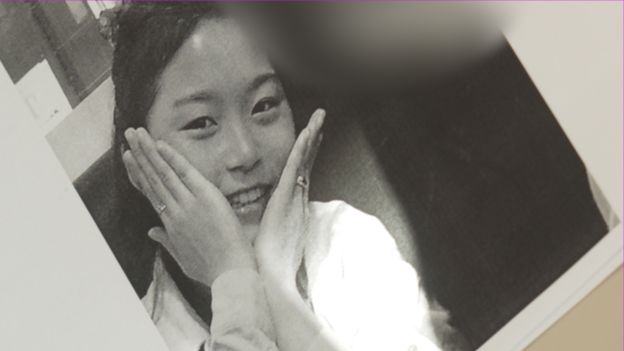
The Korean word ‘ molka’ originally meant ‘prank videos’ but is increasingly used to refer to pornographic spy cam pictures or videos. "I know I can't bring back her life, so I am doing this to prevent more people from becoming spycam victims.South Korea’s patriarchal society fails to respond to a wave of sexual harassment, contributing to the trauma many women face, writes Henry Cho. "I had not thought about how spycam could affect my life until now," said the 49-year-old mother. "(Digital crime) does not involve physical force but the impact is there, it exists and it lasts for a long time," she said.Īfter her daughter died, Yu-jung's mother attempted suicide and the father took some time off his work as a truck driver.Īs she scrolled through photos on a phone - happy times of her daughter holidaying with her fiancé - Jeong Hee-ho said she had been reluctant to speak out but was desperate for change. Mass protests in 2018 led to more women overcoming stigma to report the crime, said counsellor Kim Milinae at the Gwangju Women Link, which provides legal support to victims.īut the counsellor, who is helping Yu-jung's family, called for mental health support for the victims and family who come forward to cope with what she called a patriarchal system. "The punishment of the circulation of sex videos is too weak compared to the damage inflicted on the victim," said Kim, a director at the Korean Women Lawyers Association.Ī study by the Seoul-based non-profit group found that just 5 per cent of the nearly 2,000 illicit filming cases that went to court between 20 ended with a prison sentence. Lawyer Kim Young-mi said victims of spycam or revenge porn often had to relive their trauma in repeated bids to take videos off the internet, and that current laws were no deterrent. He was given a suspended jail sentence for assault and blackmail. Prior to her death, Koo had fought a court battle against an ex-boyfriend who threatened to release their sex videos. The suicide of K-pop star Koo Hara in November sparked nationwide debate about the health impact on women, whatever their status, from these new and extreme invasions of privacy. Nor are celebrities immune from sexual invasion. "In order to eliminate digital sex crimes, the wrong idea that sexually objectifies a woman's body must be changed first,"the ministry said in comments to the Thomson Reuters Foundation. It said raising awareness about women's rights was also key. South Korea's Ministry of Gender Equality and Family said offenders must get punishments that match the severity of the offence, and that the country's highest court is drafting new sentencing guidelines on digital sex crimes. The government has introduced a slew of counter measures: longer jail terms, daily checks in public toilets and a taskforce to help victims kill off the unwanted online videos. Official figures showed there were about 6,000 cases of the so-called spycam porn in 2018 and about 6,500 the year before.Ĭulprits typically film in public places, changing rooms or toilets, or in hotels, then sell the footage to porn sites.Ī South Korean porn website that attracted more than a million users and hosted thousands of spycam videos thrived for years until it was shut down in 2016 after activist complaints.įootage can fetch up to 100,000 won (S$120), with top earners netting more than 100 million won a month, local media say.

The problem is especially acute in tech-savvy South Korea, where thousands of women have taken to the streets in protest. Nearly one in four women who has been harassed or secretly filmed has thought about suicide, according to an October survey of 2,000 victims by the Korean Women's Development Institute, a government think tank.Īround the world, sexual predators have capitalised on technology to target women, from "revenge porn" - releasing naked pictures of former partners - to "upskirting", using phones to look up women's skirts.

The mental fallout is just as devastating, they say.


 0 kommentar(er)
0 kommentar(er)
